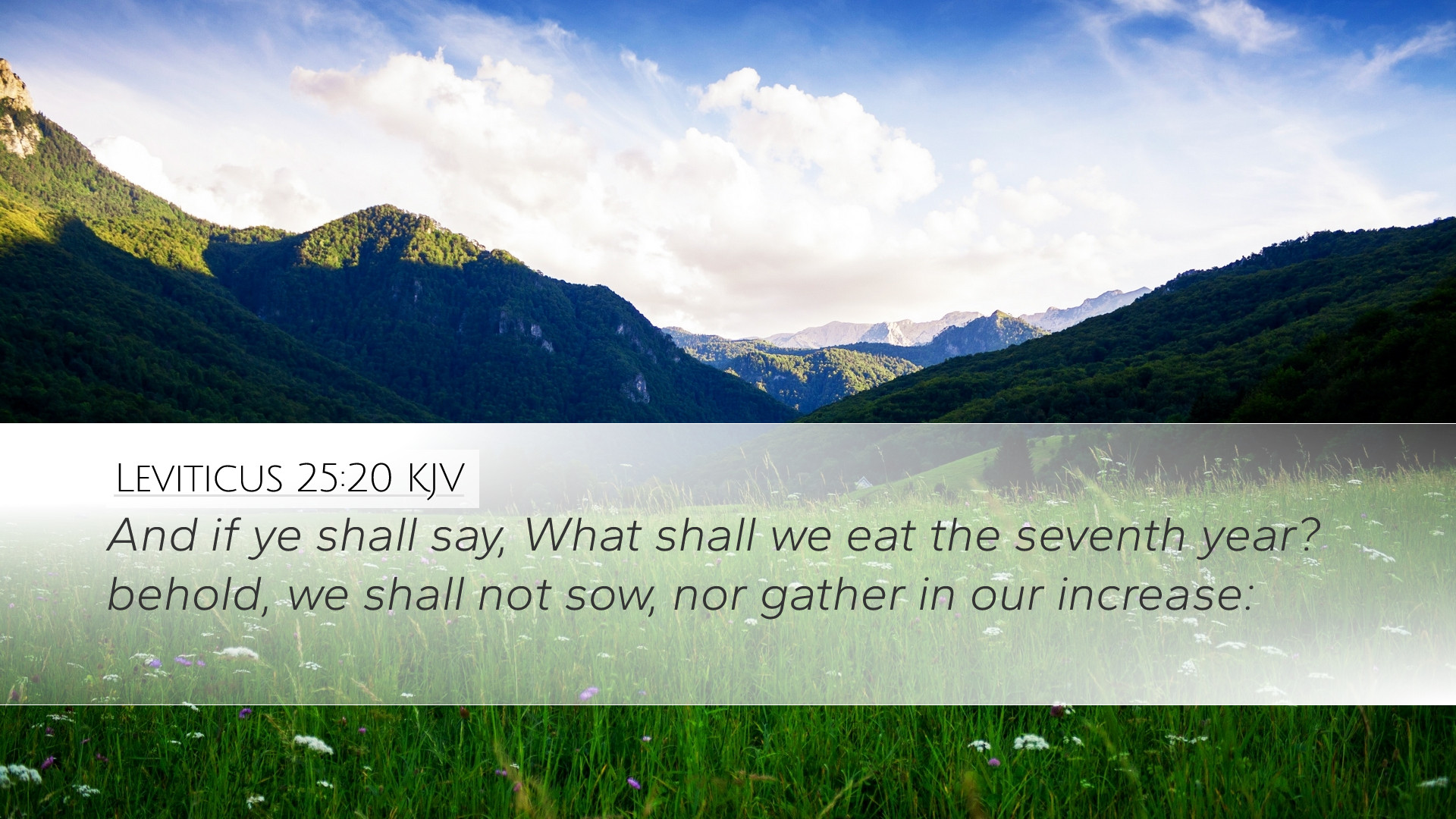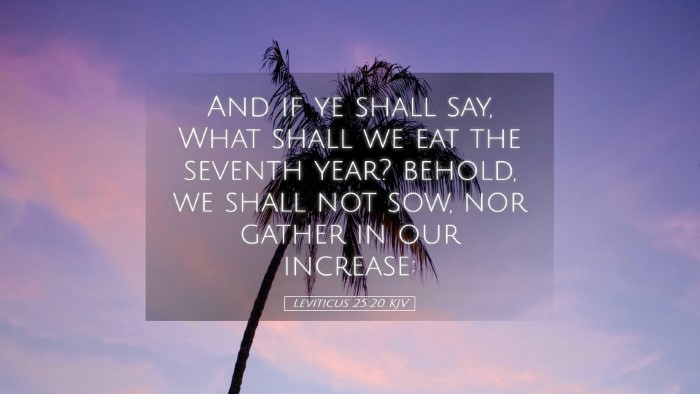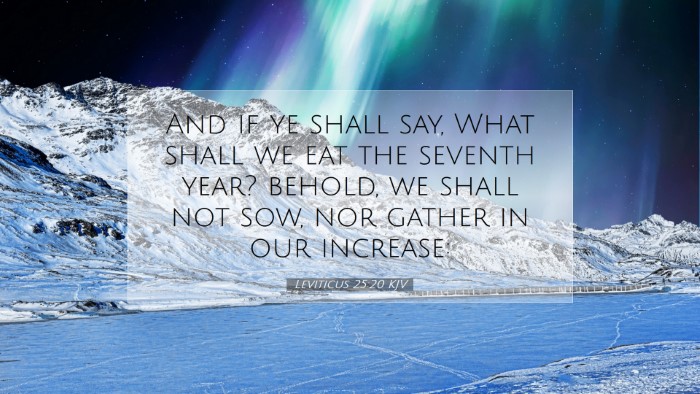Bible Commentary on Leviticus 25:20
Verse Context: Leviticus 25:20 states, “And if you say, ‘What shall we eat in the seventh year, since we shall not sow nor gather in our produce?’” This verse arises in the context of the Sabbath year, a time of rest for the land and a profound demonstration of faith in God’s provision.
Overview of Leviticus 25
The chapter serves to outline the principles of Sabbath rest for the land, emphasizing God's authority over creation and His design for humanity’s relationship with it. The Sabbath year, occurring every seventh year, required the fields to lie fallow, allowing the earth to rest and rejuvenate.
Historical and Theological Setting
In the agrarian society of ancient Israel, food security was paramount. The command to let the land rest is a radical call to trust in God's provision. The Israelites were instructed to focus not only on obedience but also on fostering a spirit of reliance upon God’s faithfulness.
Commentary Insights
- Matthew Henry: Henry emphasizes God's concern for both the land and the people. He points out that this instruction was a test of their faith, urging that reliance on the divine might lead to unexpected blessings. The question posed in the verse reflects human anxiety, a sentiment often met with God's promises. He draws parallels to contemporary Christians, highlighting the necessity of faith in times of uncertainty.
- Albert Barnes: Barnes interprets this verse as illustrating the genuine fears that can arise from strict adherence to God's commandments. He notes that the interrogative nature of the response indicates a lack of trust that can lead to disarray. Barnes clarifies that God’s provision is assured for those who obey Him. He stresses the importance of spiritual discipline and reminds believers that God's commands often come with the promise of sustenance.
- Adam Clarke: Clarke delves into the sociology of the Israelite community, elaborating that God intended for this practice to foster unity and dependence among the people. He asserts that God’s law is built upon mercy and provision, countering the material fears exemplified in the verse. Clarke emphasizes that during times of perceived scarcity, believers should remember God’s past faithfulness and provision.
Theological Implications
The verse opens several theological discussions regarding God’s providence and the nature of faith. It serves as a reminder that God’s kingdom is not one of scarcity but of abundance. The implication of resting the land also speaks to the human condition: a reminder of our need for divine support and the importance of ceasing from our labors to allow God to work in our lives.
Faith in Divine Provision
The anxiety expressed in Leviticus 25:20 captures the struggle between earthly wisdom and faith in divine providence. Each commentary highlights the necessity of trusting God, even when circumstances challenge our understanding. This faith is not passive but an active reliance on the promises of God, reflecting a core belief that His resources will never run dry.
Application for Today
- For Pastors: This verse can be a profound teaching point on the importance of encouraging congregational faith amidst economic uncertainty or challenges in life. Pastors can use this text as a foundation for sermons that remind their congregations of God’s faithfulness!
- For Students and Theologians: The discussion surrounding this verse presents an excellent opportunity to explore the interplay between law and grace, particularly how God’s commands reveal His character and intentions for human flourishing.
- For Christian Practitioners: This verse encourages believers to cultivate a rhythm of rest and rejuvenation in their lives. Practitioners should consider how they can implement ‘Sabbath’ practices in their own mental and spiritual health routines, aligning with God’s design for all creation.
Conclusion
Leviticus 25:20 challenges believers to confront their fears of lack while inviting them to trust in the bountiful provision of God. Through historical insights and theological reflection, the commentaries of Henry, Barnes, and Clarke illuminate the necessity for believers to embrace a faith that anticipates God's goodness despite external circumstances. This verse calls not only for observance of the law but also embodies a profound lesson in maintaining trust and hope in the Lord.


